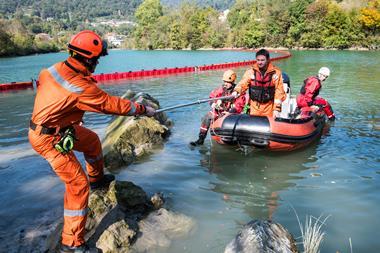One third of India’s cotton growing regions face severe climate risks by 2040 if carbon emissions continue to soar
The first ever global analysis of climate risks to global cotton production reveals that runaway climate change could expose half of all global cotton growing regions to high risks from temperature increases, changes to rainfall patterns and extreme weather events by 2040.
Under a worst-case climate scenario, the analysis by the Cotton 2040 initiative highlights that all global cotton growing regions will be exposed to increased risk from at least one climate hazard by 2040.
Sally Uren, chief executive, Forum for the Future, said: “The apparel sector is currently hugely reliant on Indian cotton and this analysis is a wake-up call for the wider cotton industry.
”In order to build the sector’s climate resilience, the widespread shifts to sustainable forms of cotton production must be bolstered by ambitious and aligned action to reduce carbon emissions, while also investing in socio-economic resilience across issues such as literacy, gender, digital access and access to finance.”
The five other highest cotton producing countries – China, US, Brazil, Pakistan and Turkey – are also all exposed to increased climate risk, particularly from wildfire, drought and extreme rainfall.
The highest climate risk overall is projected for two regions of the world; north western Africa, including northern Sudan and Egypt, and western and southern Asia.
Alastair Baglee, director, Corporates - Climate & Resilience Hub, Willis Tower Watson, said: “As it stands, emission reduction commitments and targets are being missed by the majority of countries, including India, meaning that warming of more than 3°C is probable by the end of this century.
”However successful we are with decarbonisation: we will face decades of unavoidable climate change and disruption. Preparing today is essential if we are to limit the impacts of climate change on society.”
Disruption to textile supply chains
Cotton makes up about 31% of all raw material used in the global textile market with a yearly economic impact of over $600 billion. India is the highest cotton producing country globally, engaging around 60 million people directly or indirectly in its cotton value chain, with about 40 to 50 millions of people employed in cotton trade and its processing.
The majority of Indian cotton is grown on small farms of less than 1 ha. The CRVA study focused on cotton cultivation and cotton processing in Maharashtra, Gujarat and Telangana, three of India’s major cotton growing states.
“Climate change impacts not just cotton but also the inter-connected agriculture system, and related supply chains. In order to mitigate these risks we need to catalyse sector-wide dialogue for proactive changes. Our partnership with Cotton 2040, accelerates this opportunity”, said Anita Chester, head of Materials, Laudes Foundation.
Phil Townsend, senior technical manager - Environmental Sustainability, Primark, said: “Primark is working hard to scale up its Sustainable Cotton Programme and to accelerate decarbonisation across our supply chain.
“However, we recognise we need to work with the industry to drive collective action on climate adaptation – while ensuring that cotton producers and their communities don’t get left behind. The new data from Cotton 2040 helps us all to understand the climate risks to our supply chains and develop responsible responses.”
“Investing in climate justice and socio-economic resilience must be at the heart of the cotton sector’s efforts”, added Dr Uren. “Now is the time to proactively plant the seeds for the deep transformation needed to stay below 1.5°C and deliver a just, regenerative and resilient global cotton industry.”
Titled “Adapting to climate change - physical risk assessment for global cotton production”, the analysis was commissioned by the Cotton 2040 initiative, which is facilitated by international sustainability non-profit Forum for the Future and supported by Laudes Foundation. The analysis was conducted by Cotton 2040 partner and climate-risk specialists Acclimatise.




















No comments yet